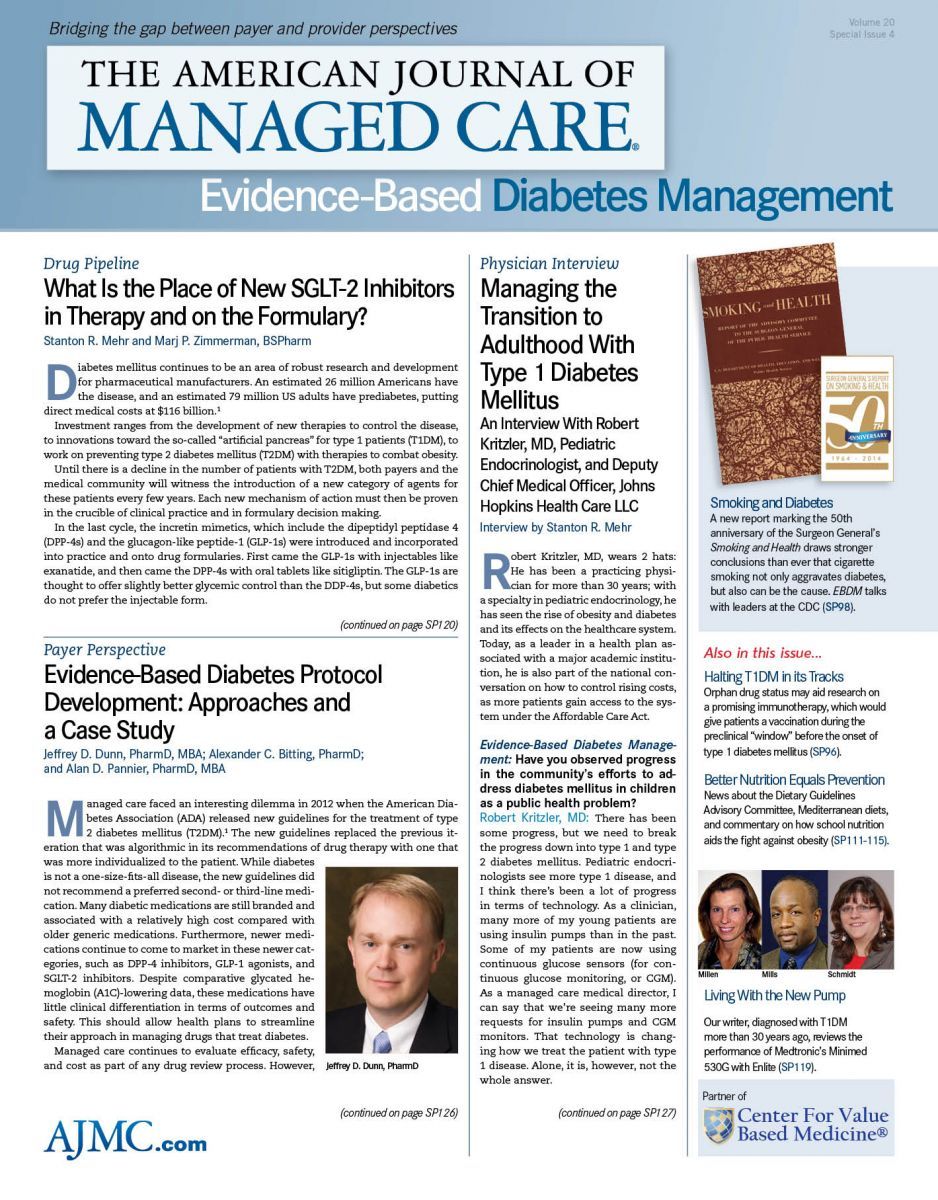- Center on Health Equity & Access
- Clinical
- Health Care Cost
- Health Care Delivery
- Insurance
- Policy
- Technology
- Value-Based Care
Diabetes Patients More Susceptible to Flu Complications
A new study provides evidence that diabetes patients should receive the influenza vaccine, though its results are not as strong as those produced by previous studies. New research finds that adults with diabetes are more likely to contract serious influenza-related illnesses, underscoring the importance of adhering to guidelines advising that all adults with diabetes receive the flu vaccine.
The new study, published online on January 24, 2014, in Diabetologia, analyzed the incidence and severity of flu-related sickness among adults with diabetes compared to those without diabetes in order to determine whether flu vaccination efforts should be targeted to working-age adults with diabetes. The cohort study used data collected from 2000 to 2008 in Manitoba, Canada. Adults aged 18 to 64 with diabetes were identified and matched to a control group of adults without diabetes. The rates of physician visits or hospitalizations for influenza-like illness, hospitalizations for pneumonia and influenza, and all-cause hospitalizations for patients in both groups were analyzed.
The study included 745,777 personyears of follow-up among 166,715 subjects with and without diabetes. Throughout the study, a total of 251,144 influenza-like illnesses, 1892 cases of pneumonia and influenza, and 36,955 all-cause hospitalizations were observed. Patients with diabetes were more likely to be vaccinated against influenza and pneumonia when compared with those without the condition. In diabetes patients, influenza was associated with a significantly increased incidence of all 3 outcomes, accounting for 13% of all influenza-like illnesses, 26% of influenza and pneumonia cases, and 6% of all hospitalizations occurring during flu season. In patients without diabetes, influenza season was only associated with an increased number of influenza-illness cases.
Influenza seemed to have a greater effect on pneumonia and influenza hospitalizations and all hospitalizations among diabetes patients when compared with controls. However, only the difference in all-cause hospitalizations was significant. When compared with adults without diabetes, patients with diabetes had a 6% greater increase in all-cause, translating to approximately 54 additional hospitalizations in the study cohort.
The results are similar to those of previous studies, which have also found diabetes to be a risk factor for flu-related hospitalizations. However, the effect of influenza observed in the current study was much smaller than that found in previous research. The authors of the study suggest that more research is needed to confirm the effectiveness of flu vaccine in adults with diabetes.
“Formal economic studies are also required, to ascertain the extent to which identifying diabetes as a high-risk indication for vaccination may mitigate the healthcare use and costs associated
EBDM
with influenza,” they conclude.

Quality of Life: The Pending Outcome in Idiopathic Pulmonary Fibrosis
February 6th 2026Because evidence gaps in idiopathic pulmonary fibrosis research hinder demonstration of antifibrotic therapies’ impact on patient quality of life (QOL), integrating validated health-related QOL measures into trials is urgently needed.
Read More
Exploring Pharmaceutical Innovations, Trust, and Access With CVS Health's CMO
July 11th 2024On this episode of Managed Care Cast, we're talking with the chief medical officer of CVS Health about recent pharmaceutical innovations, patient-provider relationships, and strategies to reduce drug costs.
Listen
Building Trust: Public Priorities for Health Care AI Labeling
January 27th 2026A Michigan-based deliberative study found strong public support for patient-informed artificial intelligence (AI) labeling in health care, emphasizing transparency, privacy, equity, and safety to build trust.
Read More

